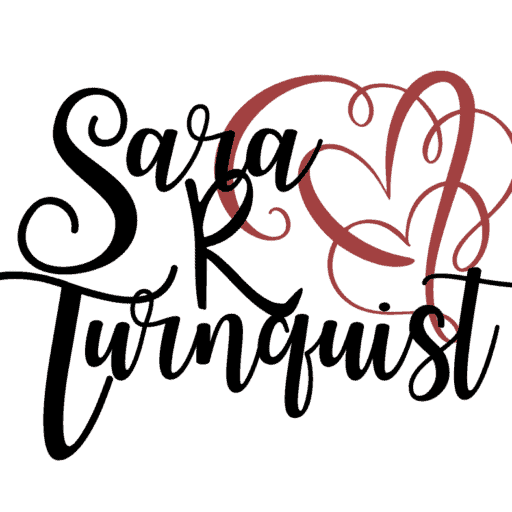In the life of a writer, we all must come to that point when we decide the world should have access to our art. We have babied it and honed it as much as we possibly can. It is at that point. We are as confident as we can be. The dreamer in us has overcome our insecurities.
Then, we find out that there is this, pardon me for being honest, beast of a thing called a QUERY letter. What an undertaking that is! For those of you who may just now be reaching that point, let me explain and (hopefully ease some anxiety for some of you who are, rightfully so, a bit overwhelmed it).
What is a Query?
 Basically, a query is an opportunity to share your book in a concise way. To pitch it, in other words. Agents, acquisition editors, and publishers do not have time to read entire manuscripts as they comb through the many submissions in their inboxes each day. So the query letter is a valuable tool for both them and you. It is a snapshot of your book in about eight sentences. Your goal is to get them interested enough to request more information (or open the attachments you sent; note here: do not send anything not requested in the submission guidelines).
Basically, a query is an opportunity to share your book in a concise way. To pitch it, in other words. Agents, acquisition editors, and publishers do not have time to read entire manuscripts as they comb through the many submissions in their inboxes each day. So the query letter is a valuable tool for both them and you. It is a snapshot of your book in about eight sentences. Your goal is to get them interested enough to request more information (or open the attachments you sent; note here: do not send anything not requested in the submission guidelines).
The query is NOT a tool that is intended to get them to sign on the dotted line. It is to intrigue them enough to take that next step.
The usefulness of the Query
 Once you have the query, you will reuse it many places. It can be tweaked and included in these places:
Once you have the query, you will reuse it many places. It can be tweaked and included in these places:
- the query letter
- book proposal
- your website
- media kit
- back blurb (back cover copy)
- any information you send out about your book
So, as you can see, you want to put a lot of thought and effort into getting it just right, but it will pay off.
Before you Query
 For a debut author, you need to make sure that your manuscript is completed and as polished as it can be. A professional edit is not a bad idea. Research comparable titles. These are books that are similar to your in theme, tone, story elements, etc. At the same time, note how your book stands out among the others.
For a debut author, you need to make sure that your manuscript is completed and as polished as it can be. A professional edit is not a bad idea. Research comparable titles. These are books that are similar to your in theme, tone, story elements, etc. At the same time, note how your book stands out among the others.
You also want to research the agent/acquisition editor/publisher you are querying. Do they work in your genre? Learn their name and what kinds of books they typically represent. You want to personalize the query as much as you can.
How do you find someone to query? Going to conferences is the best way hands down. You can also look on past conference websites or research your favorite authors’ websites and books to determine their publishers/agents.
The Elements of a Query
SUBJECT LINE
Some submission guidelines will tell you what to put in the subject line. Others do not. If you have freedom to put what you would like. Insert something like “QUERY: historical romance with a marriage of convenience between a widow and a rancher in trouble”.
FIRST PARAGRAPH
You will want to introduce yourself and include why you are personally writing to this agent/editor/publisher, be that a mutual acquaintance that recommended you do so, or that your book is similar in tone to other books they represent, etc.
SECOND (& MAYBE THIRD) PARAGRAPH
You will need a HOOK. This is also your ELEVATOR PITCH. A 1-2 sentence overarching description that intrigues. Often these are rhetorical questions. “What if’s…”. For A Convenient Risk, a pitch may be: “What if a newly widowed young mother is drawn into a marriage of convenience only to find out that her new husband may have ties with one of America’s most infamous outlaws?”
Elevator pitches are a wonderful way to share your book’s main concept if you are riding, say, an elevator with someone in the industry and have only that long to pitch it (thus, why it is called an “elevator pitch”), or if someone asks you what your book is about when you are networking with other authors/readers.
Go on to include about six sentences about the book’s NEED/STORY. This is the essence of the book. We’re talking broad details here. This should be heavy on the front part of the book and, again, intrigue the person reading it. But be concise, don’t trip yourself up on trying to be fancy with the prose. The agent/editor/publisher is more interested in what you have and determining if they should read more. (That doesn’t mean you neglect your writing skills altogether.)
It is important to convey the conflict and stakes for your protagonist. What does your protagonist want and what’s in his/her way? Why is your book worthwhile? They will only care about your story if they care about your character.
FOURTH PARAGRAPH
This is for your writing credentials. Now, as a newbie writer, you may not have many or any. That’s okay. Talk about (briefly) why you wrote this book. What makes you an authority on this topic (more for nonfiction)? List any credits, endorsements, and awards (but not minor ones, and high school awards do not count except in very specific cases). Try to keep as much of your personal life out of the query unless it is related to the book or your platform. I cannot stress brevity enough.
FIFTH PARAGRAPH
Here is where you share the books pertinents. Word count, the fact that it is completed, target audience, comparable titles, and any marketing information. Your target audience is who you think will buy your book. DO NOT put “everyone aged 25-45”. You need to know your audience better than that. Is it women or men? Younger? Older? What kind of books do they like? TV shows?
CLOSING PARAGRAPH
Thank the person for their time/consideration. Mention any attachments and what they include, but again, only if they were requested by the agent/editor/publisher or in the submission guidelines. And, please include your contact information…at the very least, your e-mail address and phone number.
For more information:
If you want more information on Querying and Writing Proposals (proposals are something you may need to work with in this process), there is a great book on this subject: STEP BY STEP PITCHES AND PROPOSALS by Chip MacGregor (which was a great source for double checking my info for this blog post) and you can check out QueryShark’s Blog (http://queryshark.blogspot.com/). QueryShark is a literary agent who goes through queries and gives (sometimes harsh) feedback. But it will help you hone you query-writing skills.
Also, June 22nd-24th, I’ll be talking about Writing a Proposal/Querying at the Kentucky Christian Writer’s Conference. It’s not too late to register! If you spot me, I’d love to chat.


